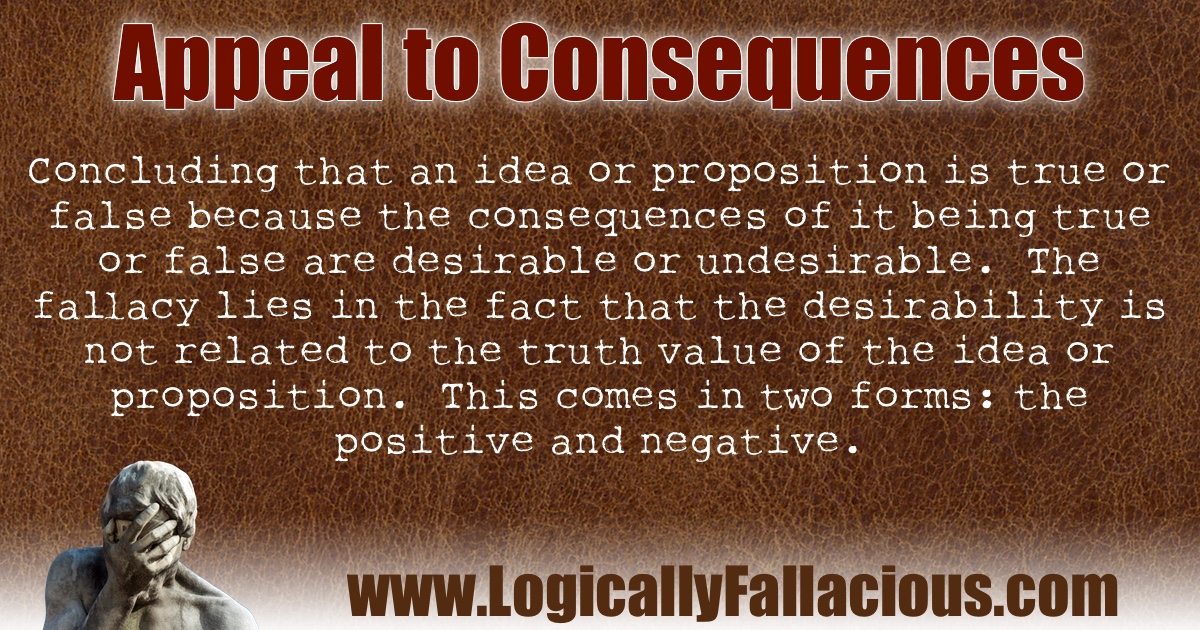argumentum ad consequentiam
(also known as: appeal to consequences of a belief, argument to the consequences, argument from [the] consequences, appeal to convenience [form of], appeal to utility)
Description: Concluding that an idea or proposition is true or false because the consequences of it being true or false are desirable or undesirable. The fallacy lies in the fact that the desirability is not related to the truth value of the idea or proposition. This comes in two forms: the positive and negative.
Logical Forms:
X is true because if people did not accept X as being true then there would be negative consequences.
X is false because if people did not accept X as being false, then there would be negative consequences.
X is true because accepting that X is true has positive consequences.
X is false because accepting that X is false has positive consequences.
Example #1 (positive):
If there is objective morality, then good moral behavior will be rewarded after death. I want to be rewarded; therefore, morality must be objective.
Example #2 (negative):
If there is no objective morality, then all the bad people will not be punished for their bad behavior after death. I don’t like that; therefore, morality must be objective.
Explanation: The fact that one wants to be rewarded, or wants other people to suffer, says nothing to the truth claim of objective morality. These examples are also begging the question that there is life after death.
Example #3:
If there is no freewill, then we are not ultimately in control of our actions. If this is true, our entire system of justice would be seriously flawed. This would be very bad; therefore, freewill must exist.
Explanation: The “freewill” argument has been around for thousands of years, and we may never know how free we really are to make decisions. Many philosophers recognize this problem as well as the consequences of not believing in freewill. For this reason, some suggest that we should just accept freewill as being true. While acting as if we have freewill might lead to a better outcome, actually believing freewill to be true because of the consequences is a compromise of one’s rational integrity.
Exception: If the consequences refer to actions taken or not taken, it would be more of a warning than an argument, thus not fallacious.
If you continue to reflect the sun in my eyes using your watch, I will take your watch and shove it in a place the sun don’t shine. Therefore, you should really stop doing that.
Variation: The appeal to convenience is accepting an argument because its conclusion is convenient, not necessarily true. This is very similar to the appeal to consequences except that consequences are only positive and reasonably referred to as “convenient.”
Tip: Realize that you can deal with reality, no matter what that reality turns out to be. You don’t need to hide from it—face it and embrace it.

References:
Walton, D. (1999). Historical Origins of Argumentum ad Consequentiam. Argumentation, 13(3), 251–264. https://doi.org/10.1023/A:1007779527544